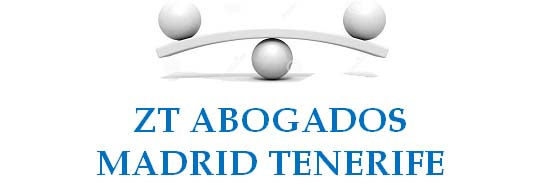SPANISH NATIONALITY OF CHILDREN BORN IN SPAIN OF FOREIGN PARENTS
Some time ago I was consulted by marriage, both spouses of Colombian nationality. Their daughter was born in Spain but the Register did not accept to grant the child with a Spanish nationality. To make matters worse, another son of the same marriage had been registered as Spanish national. The question is: are Spaniards all born in Spain?.
IUS SOLI – IUS SANGUINI
On nationality matters there are two world major legal systems: one is the "ius soli" generally applicable in the American countries, by which everyone born in that country has the nationality of the same irrespective of the nationality of their parents. The other one is the "ius sanguini" which interpretes that the child takes the nationality of their parents regardless of the country where he was born. There are other types as the "ius domicili" (place of domicile of the parents) . Today most countries use combined systems. This would be the general concept, although there many aspects in which we will not go far now.
SPANISH CASE
Nationality is regulated in the Civil Code, articles 17 to 28. These articles state the ways to acquire, retain and lose Spanish nationality, distinguishing for example, Spanish nationality of origin, adoption, option, by letter of naturalization, residence , etc.
They are Spaniards of origin (Article 17.1 of the Civil Code): a) those born of a Spanish father or mother; b) those born in Spain of foreign parents if at least one of them was also born in Spain (except the children of diplomats); c) which is this case: “Those born in Spain of foreign parents if both of them should be without nationality or if the legislation of neither should grant a nationality to the child”, so , except for the cases of stateless children, would be necessary to clarify the scope of the information on the national law of the parents to determine if the country of their nationality granted to their children such nationality .
In other words, not all children born in Spain of foreign citizens will be Spaniards of origin or for simple presumption, but will depend on the law of the country of the parents. It means that according to Spanish law, those born of foreign parents have the nationality of their parents, but there are countries that do not grant their nationality to the children born abroad. To prevent these children lacking citizenship the mere presumption of Spanish nationality is granted.
To process the record of Spanish nationality by mere presumption the following documents must be submitted: 1) Literal birth certificate of the newborn in Spain; 2) certificate of registration at the Town Hall of parents (and coexistence stating that the child lives with them); 3) birth certificate of each of the parents from their national country, duly legalized (Apostille of The Hague Convention or authenticated through the Spanish Consulate, as appropriate); 4) marriage certificate; 5 ) original and photocopy of passports of parents; 6) consular certificate (issued by the Consulate of the country of origin in Spain) stating that the law of that country does not recognize the said nationality to the child.
The General Directorate of Registries and Notaries published a list of some countries which the Spanish law would be applied to. This means, for example the case of Latin American countries such as: Argentina, Brazil, Colombia, Costa Rica, Cuba, Peru.
NOTE : Colombian nationality law is as mixture of “ius soli”, “ius sanguini” and “ius domicili”. According to Colombia Constitution, Colombians are the children of a Colombian father or mother who were born abroad and then became domiciled in Colombia or registered in a consular office of the Republic and by adoption. So, in the present case, if the Colombian progenitors not enroll their child born in Spain in the consulate of Colombia, they may obtain a certificate that will enable them to obtain Spanish nationality for the child by presumption. In case of refusal, the resolution should be appeal in administrative and contentious-administrative way. Bear in mind that there is a Double Nationality Treaty signed between Spain and Colombia in 1979.
See this article in Canarian Weekly











